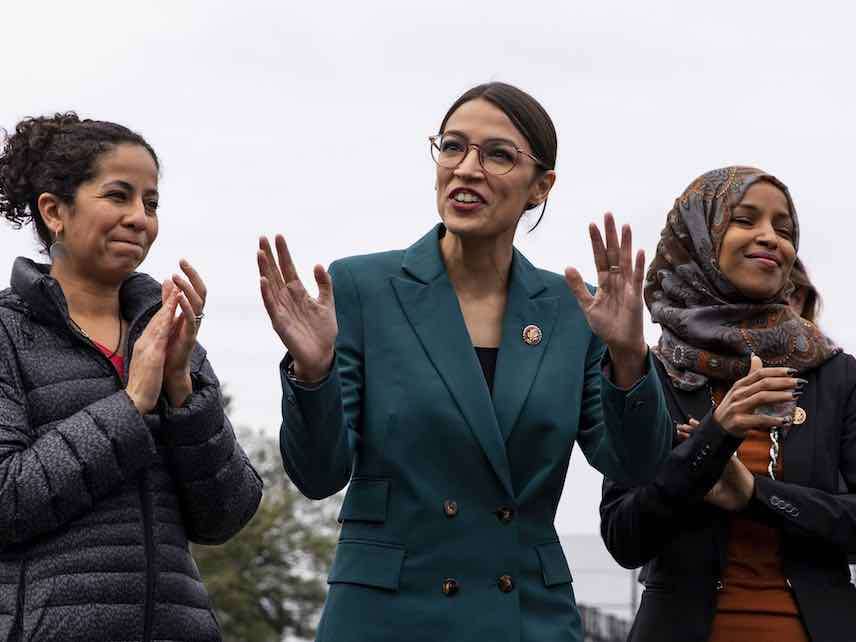Think the Green New Deal Is Crazy? Blame Intersectionality.
The left loves fringe causes, like providing welfare to people who are "unwilling to work."

The Green New Deal, released earlier this week by Rep. Alexandria Ocasio-Cortez (D–NY), has drawn plenty of criticism from conservatives, libertarians, and even some centrist liberals: New York magazine's Jonathan Chait advised Democrats to scrap it and start over.
Many of these articles—including ones penned by Reason's Ronald Bailey and Joe Setyon—have pointed how ludicrously broad the Green New Deal is. Notably, it does not confine itself to environmental policy: the proposal also asks for more education funding, more health care funding, the enforcement of "workplace health and safety, antidiscrimination, and wage and hour standards across all employers, industries, and sectors," enforcement of "trade rules," and, according to the Green New Deal's FAQ sheet, "economic security for all those who are unable or unwilling to work."
Why would the left include a provision about subsidizing the lifestyle of lazy people in its climate change manifesto? Because that's what intersectionality requires.
As I explain in my forthcoming book, PANIC ATTACK: Young Radicals in the Age of Trump (pre-order it here), intersectionality is a philosophical framework that has come to completely dominate progressive activist thinking in the 30 years since the sociologist Kimberle Crenshaw first coined it. An intersectional progressive recognizes that racism, and sexism, and homophobia, and transphobia, and age-ism, and classism, and so on, are separate-but-related phenomena. To ignore just one of these sources of oppression is to fail intersectionality; the seriously social-justice minded must treat all of these issues as equally important and confront them en masse.
The original concept isn't entirely without merit, and there are many cases where it would be worth it for social change agents to consider their blind spots (see: the Women's March and anti-Semitism). But a lot of the time, adding more and more demands is a surefire way to make sure none of them get taken seriously. It's very hard to form an ideologically diverse coalition around a single issue—like, say, climate change—if you expect your coalition to also agree on a bunch of other fringe issues—like, say, "unwilling to work" subsidies.


Show Comments (124)